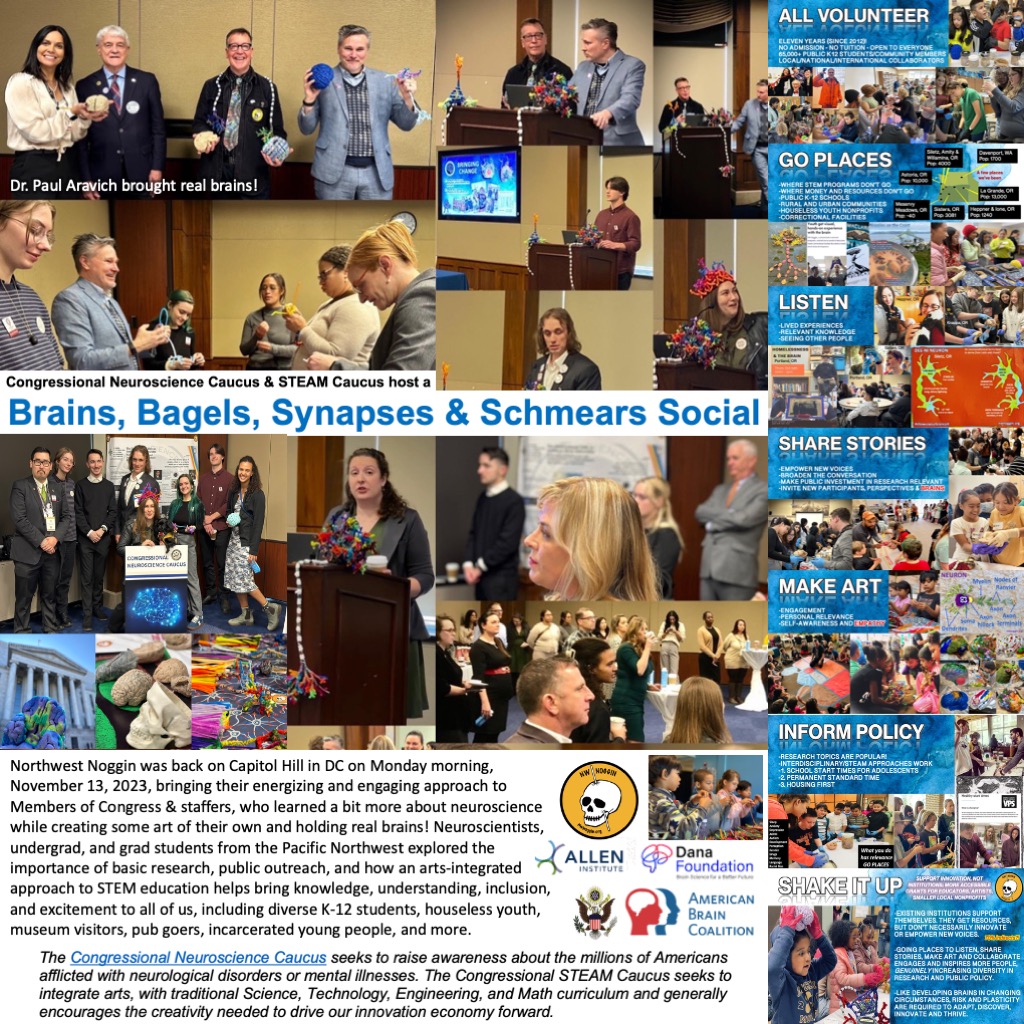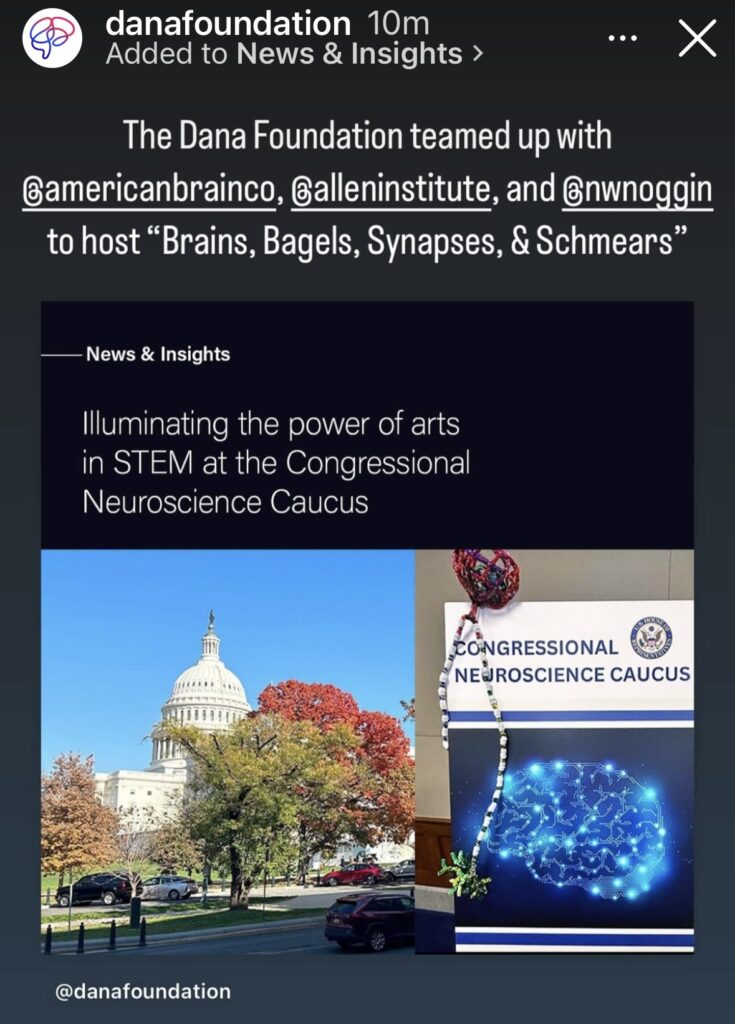“I just hope that more people will ignore the fatalism of the argument that we are beyond repair. We are not beyond repair. We are never beyond repair.”
— Alexandria Ocasio-Cortez
Brains change, but they also develop routines, and adult brains are less plastic and more fixed in their neural connections than younger noggins. Many adults, particularly if they are comfortable and ensconced in familiar surroundings, may act in predictably biased and consistent ways despite major shifts in the world around them.
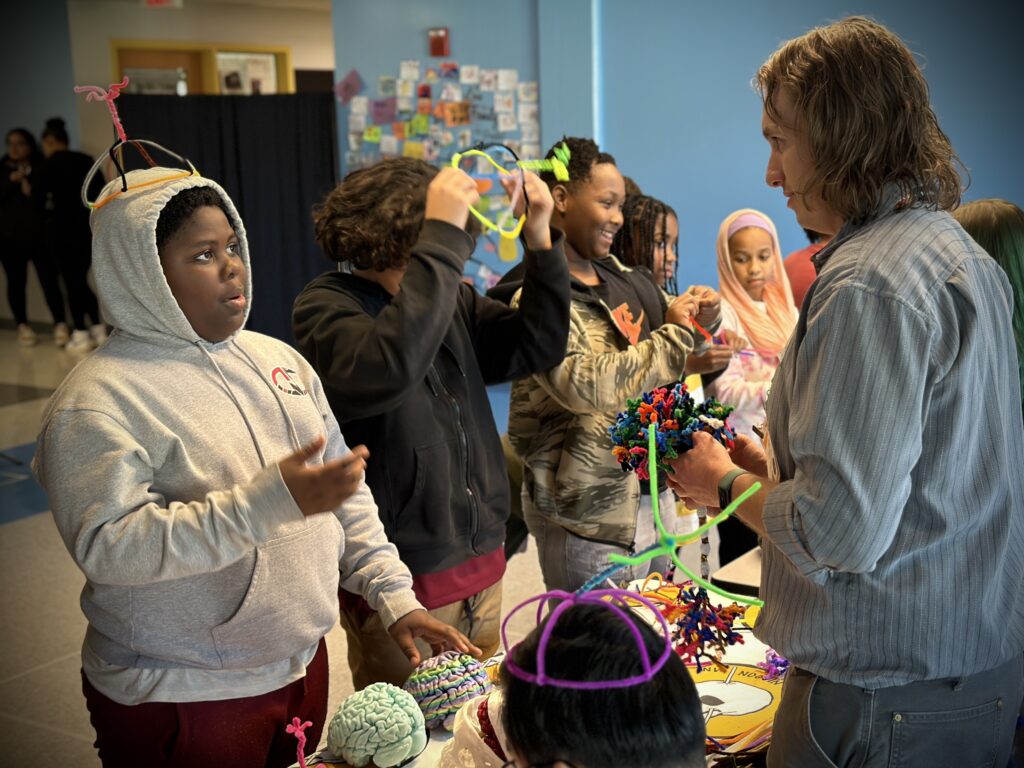
LEARN MORE: Changes in plasticity across the lifespan
LEARN MORE: Horizons in Human Aging Neuroscience
Institutions get like this too.
Innovation and Frontiers
Pre-pandemic, Jeff Leake and I, at the time both adjunct faculty, were invited as two of 500 “innovators” for our work with Noggin to attend a White House “Frontiers” conference in Pittsburgh, Pennsylvania. At the conference, then President Barack Obama told us about institutions – including universities.
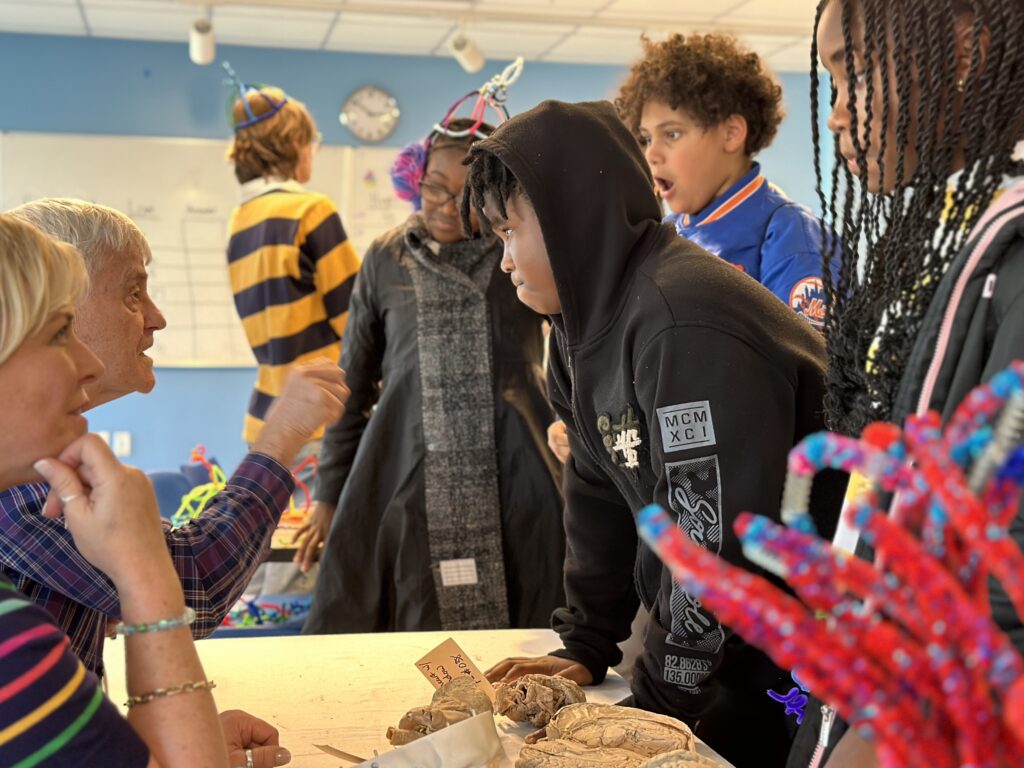
Our own universities (at the time we were teaching at both Portland State and WSU in Vancouver), had no idea what this was about; after all it did not involve tenured faculty, it didn’t fit WSU’s “drive to 25” marketing plan, there was no advanced faculty or administrative committee discussion.
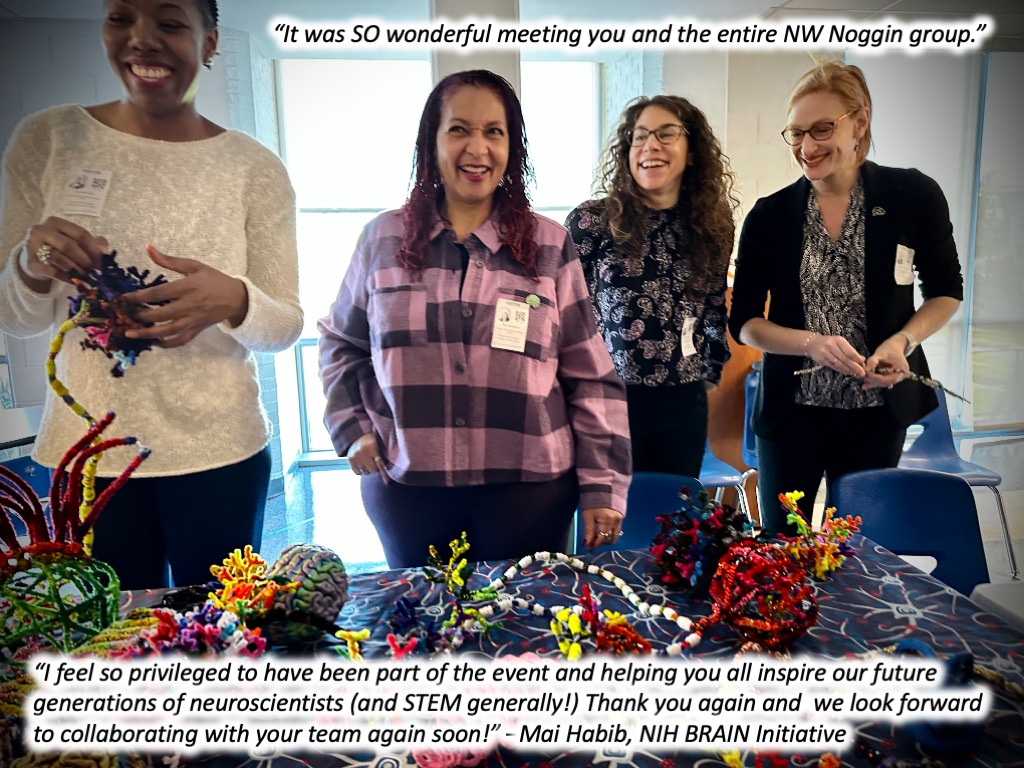
It was a sudden, unexpected, novel, exciting opportunity based on our direct, interdisciplinary, all-volunteer community outreach and engagement, and there was no existing institutional mechanism for recognition or support.
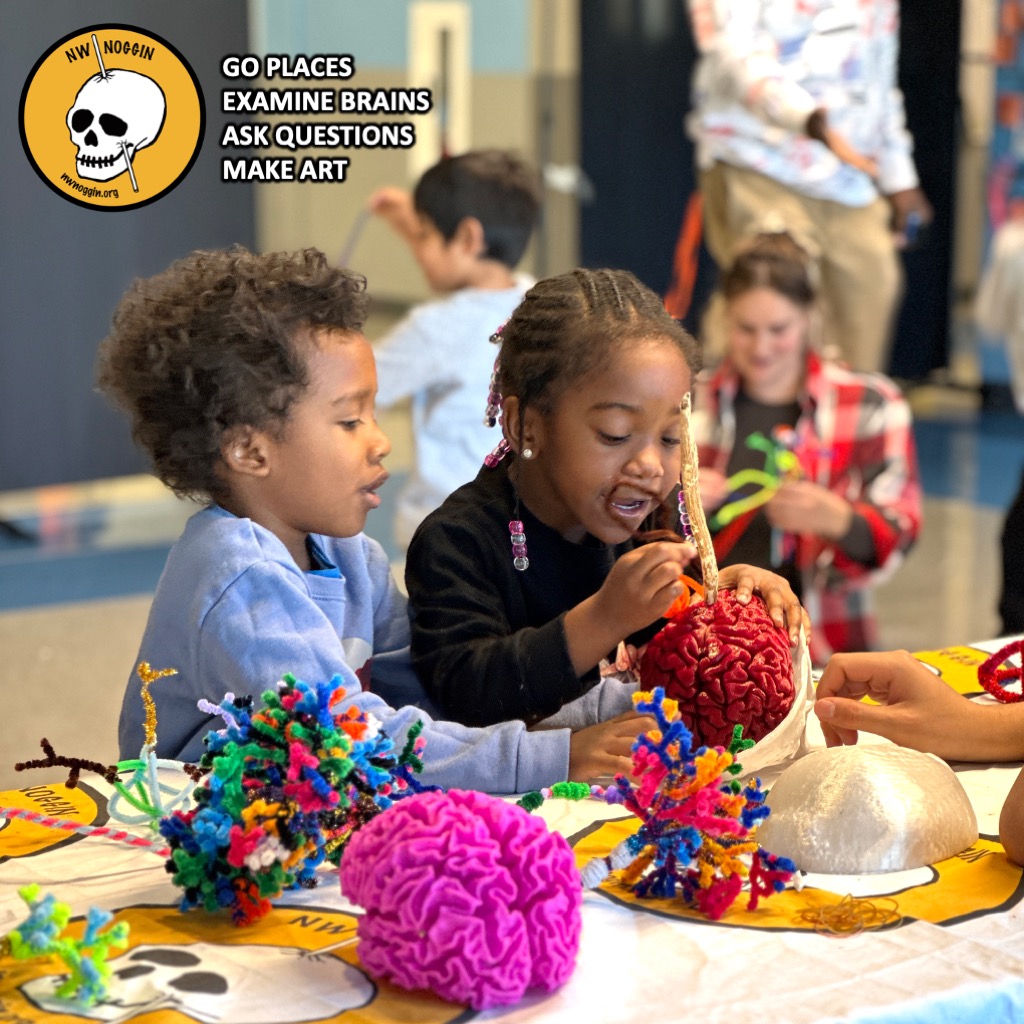
But we made it, by paying ourselves for flights and meals, while the conference footed the hotel bill. It was an extraordinary two days of talks, technological demonstrations, neuroscience research and art that enriched our own understanding, connections and subsequent teaching, and encouraged us to continue, despited minimal interest from the places we taught.
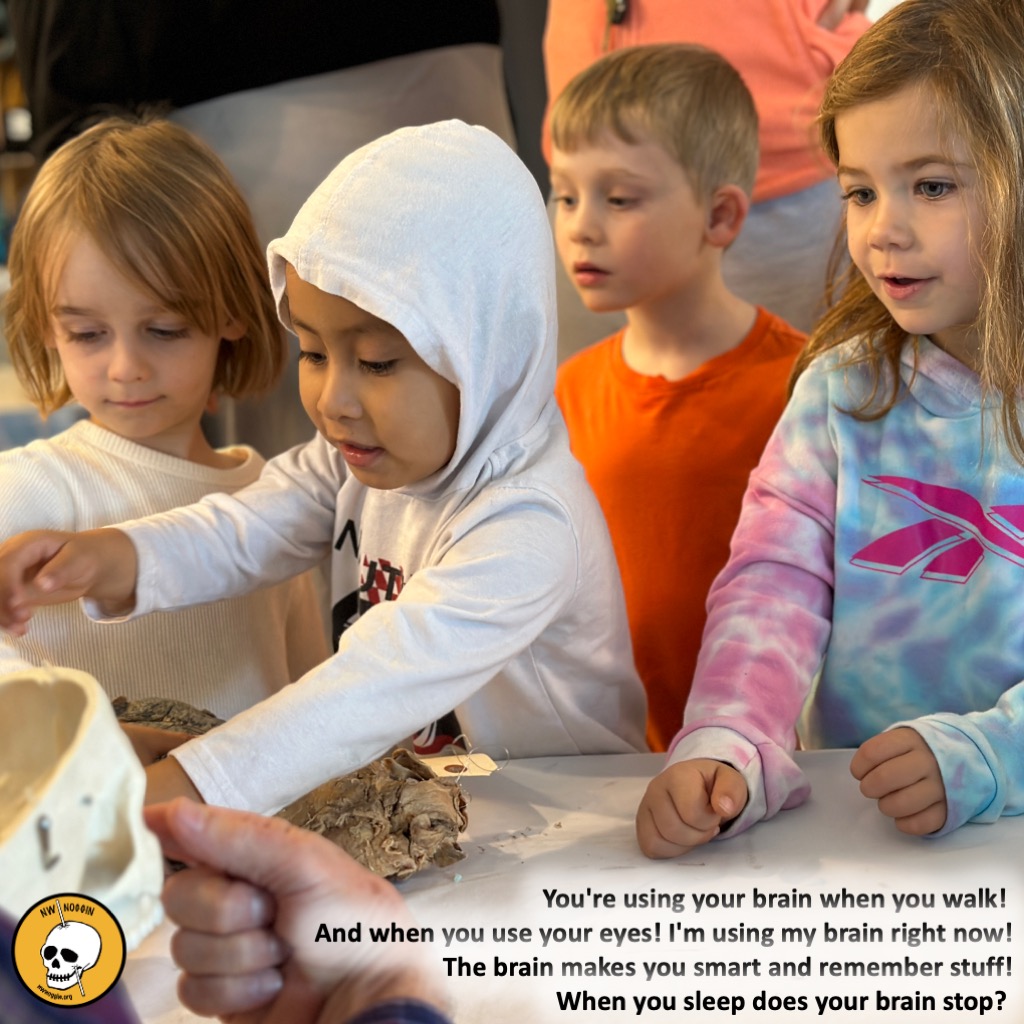
And we’ll never forget what the President told us.
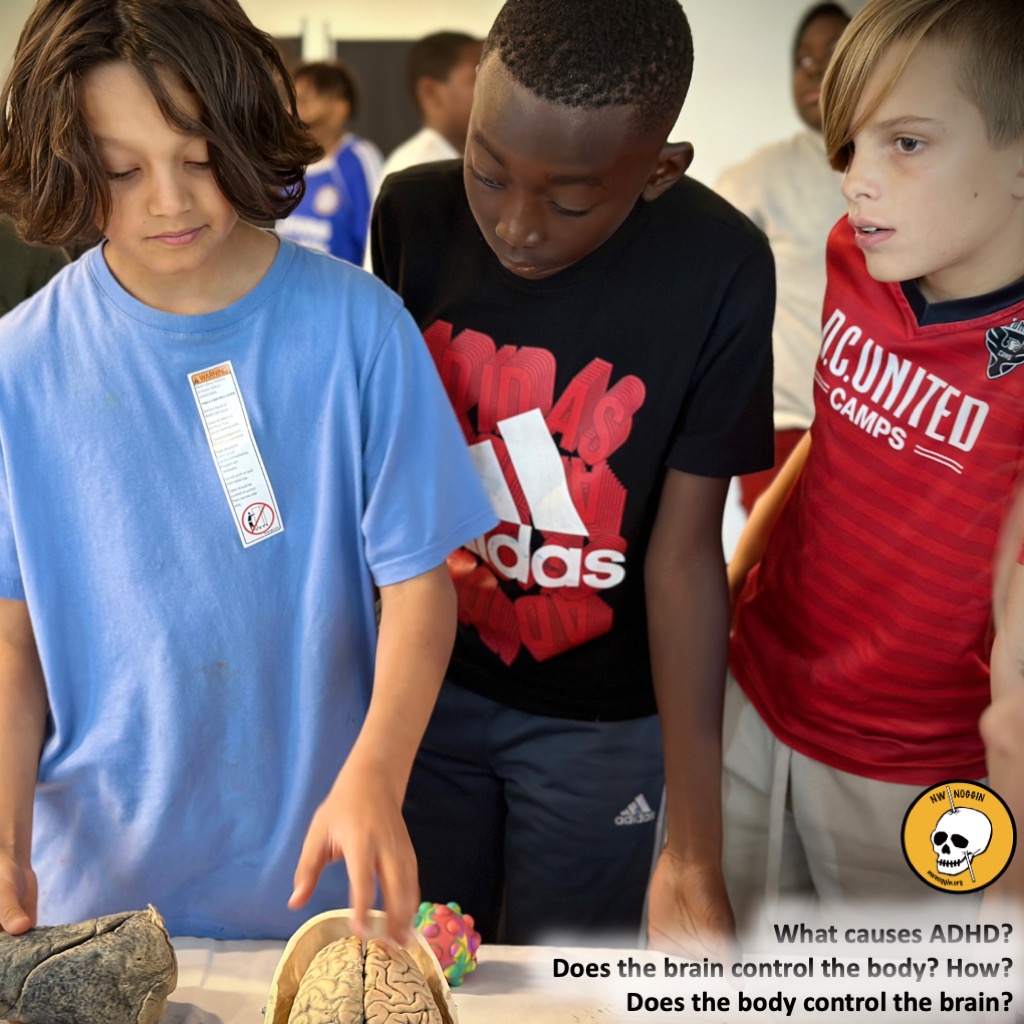
Barack Obama said that innovators aren’t always welcomed by large institutions, including universities, which may decide that preserving a complicated, ineffective administrative structure is their primary mission, and not support creative new approaches that might better address what they initially set out to do.
“This institution seeks to serve our students first.”
— Professor Ben Padrow, Portland State University (from a plaque at the Smith Student Center)
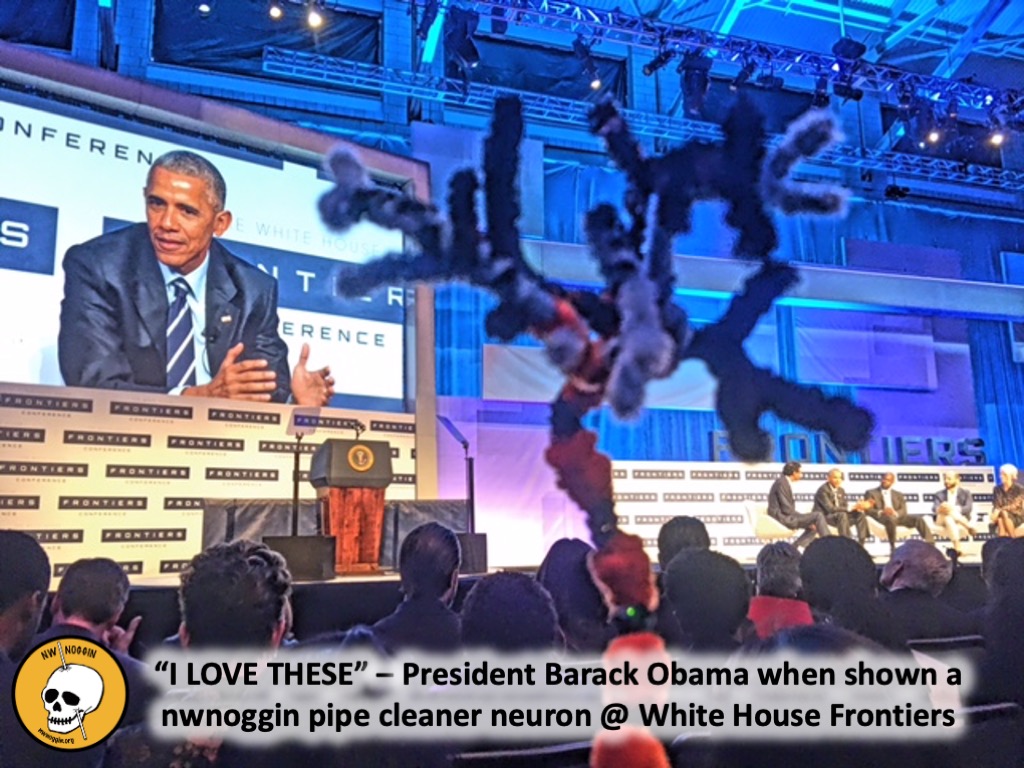
LEARN MORE: Noggin @ White House Frontiers
MAKE YOUR OWN: Pipe Cleaner Neurons
Brains can change. Can institutions?
But our brains – yes, adult brains included – CAN change, especially if they get out of their comfort zones and GO PLACES. Innovation, creativity, listening, art making, engagement and support for new scientists, artists and researchers is key.
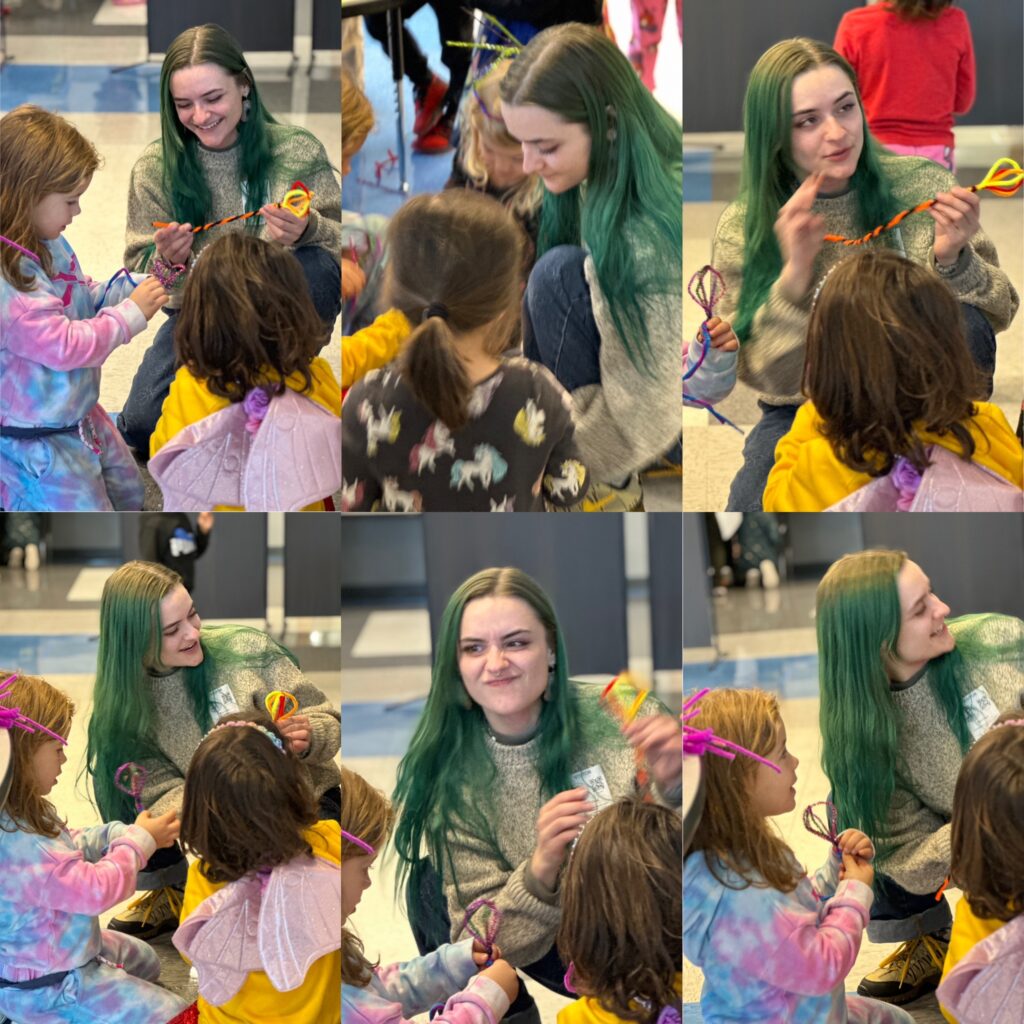
Since that Frontiers Conference we’ve met with tens of thousands of additional K-12 students, incarcerated youth, houseless young people – often those who don’t sit comfortably in existing institutions and who don’t receive much funding, resources or support.
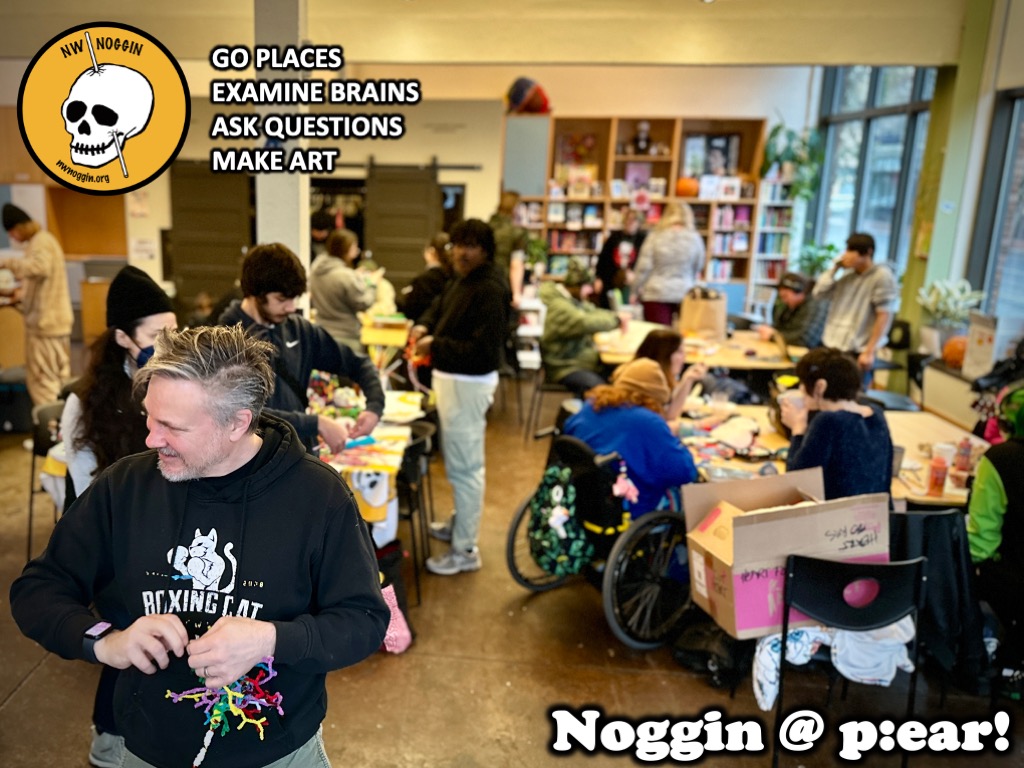
And this November we were invited to present what we’ve learned in Congress!
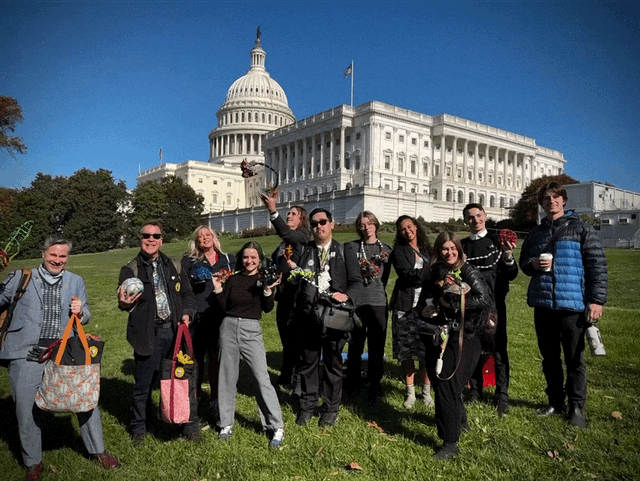
Noggins in DC
We escorted EIGHT accomplished interdisciplinary neuroscience minor undergraduates to our nation’s capital, to present original posters at the Society for Neuroscience conference, support a free public Neuroscience Night at a local brewery, present to the House Neuroscience and STEAM caucuses in the U.S. House of Representatives, and hear from K-8 students in DC public schools!
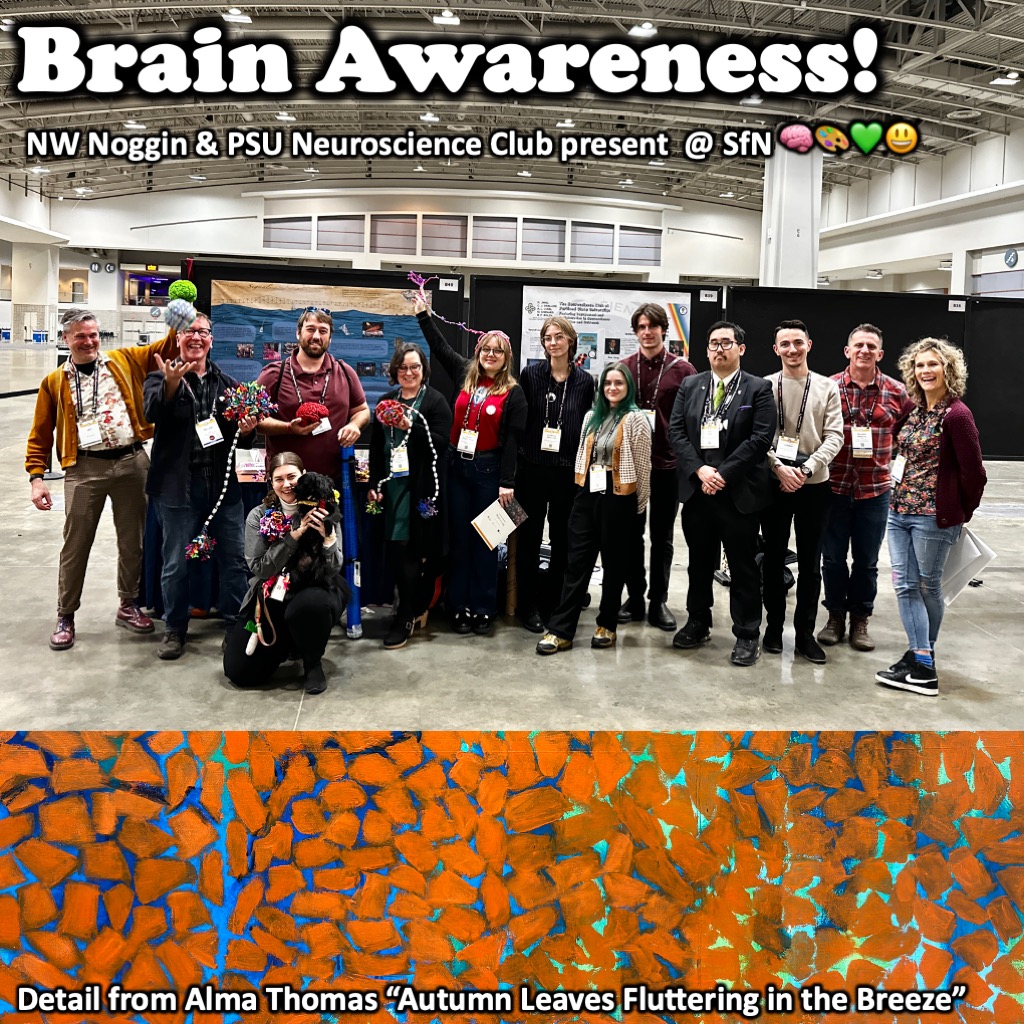
LEARN MORE: Noggin at SfN, DC schools and Congress!
Once again, our own institutions, this time PSU and Oregon Health and Science University, played limited roles. But we’ve managed to meet with 65,000+ community members without much institutional notice or engagement by going places, reaching out, developing relationships, listening – literally getting housed by local families, fed by local restaurants, welcomed by local communities.
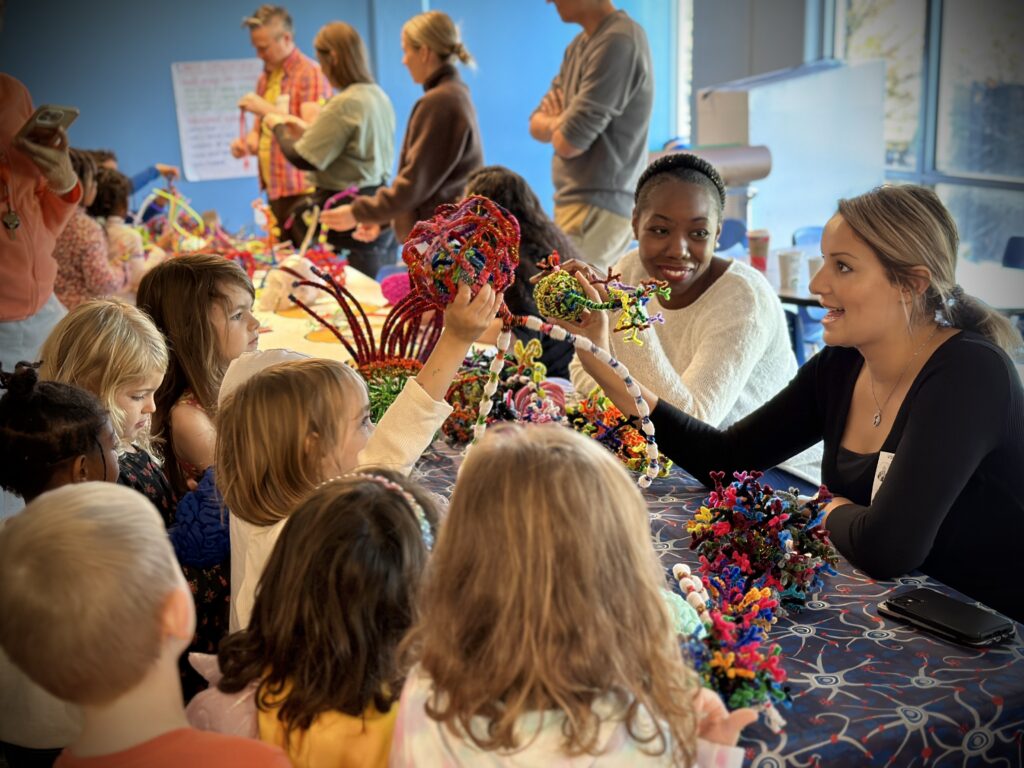
Thanks to our supporters!
The American Brain Coalition arranged our House briefing and provided one night in an AirBnB for faculty presenters, Oregon’s Roundhouse Foundation filled major gaps in PSU funding for our eight Neuroscience Club undergraduates, providing them with essential per diems in Washington, the Society for Neuroscience waived conference registration fees for PSU students, and DC Public Schools fed and caffeinated all our volunteers!
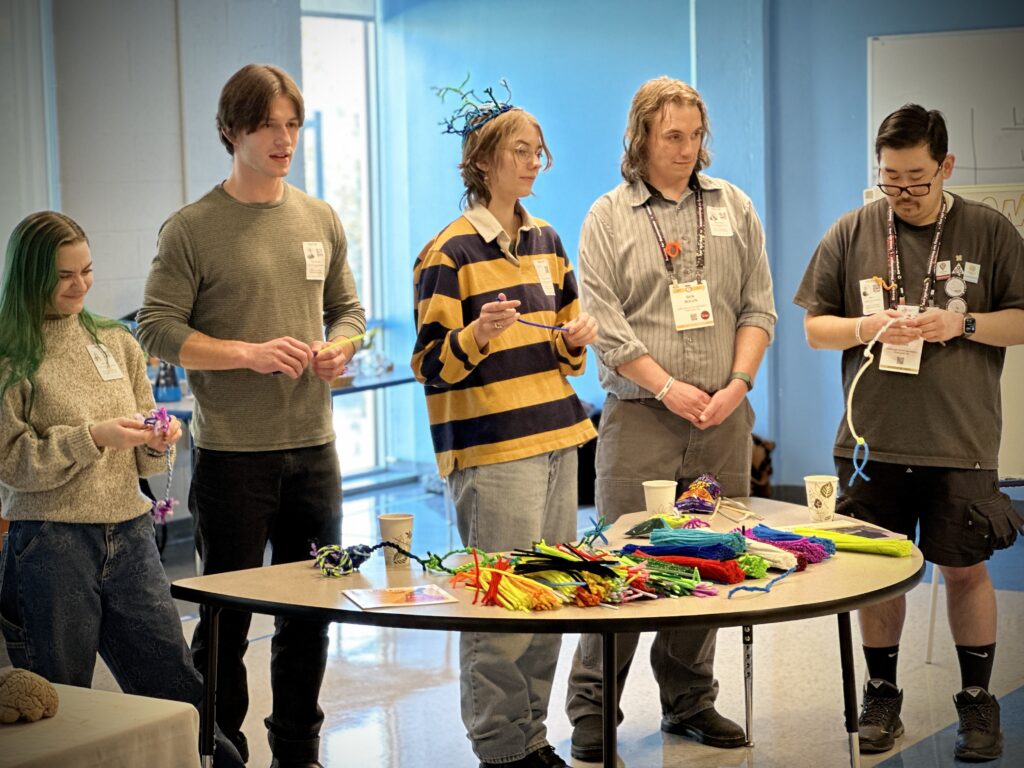
Portland State University reimbursed about 80% of flight costs for their own faculty and students, but left faculty with bills for housing and food in DC. The Portland Alcohol Research Center (PARC) at OHSU, which claims our extensive outreach numbers (5000+ people reached last year) as their own on federal grants in exchange for some pipe cleaners and 3D printing filament, declined to offer any support.

As for the House briefing, where faculty from PSU and OHSU, along with eight undergraduates from the PSU Neuroscience Club presented at the invitation of the Neuroscience and STEAM caucus chairs, there was zero interest or sponsorship from our own universities.

However, HUGE THANKS are due to a powerhouse of neuroscience research in the Pacific Northwest, the Allen Institute, which co-sponsored our presentation to Congress, along with the Dana Foundation, the originator of “Brain Awareness Week.”
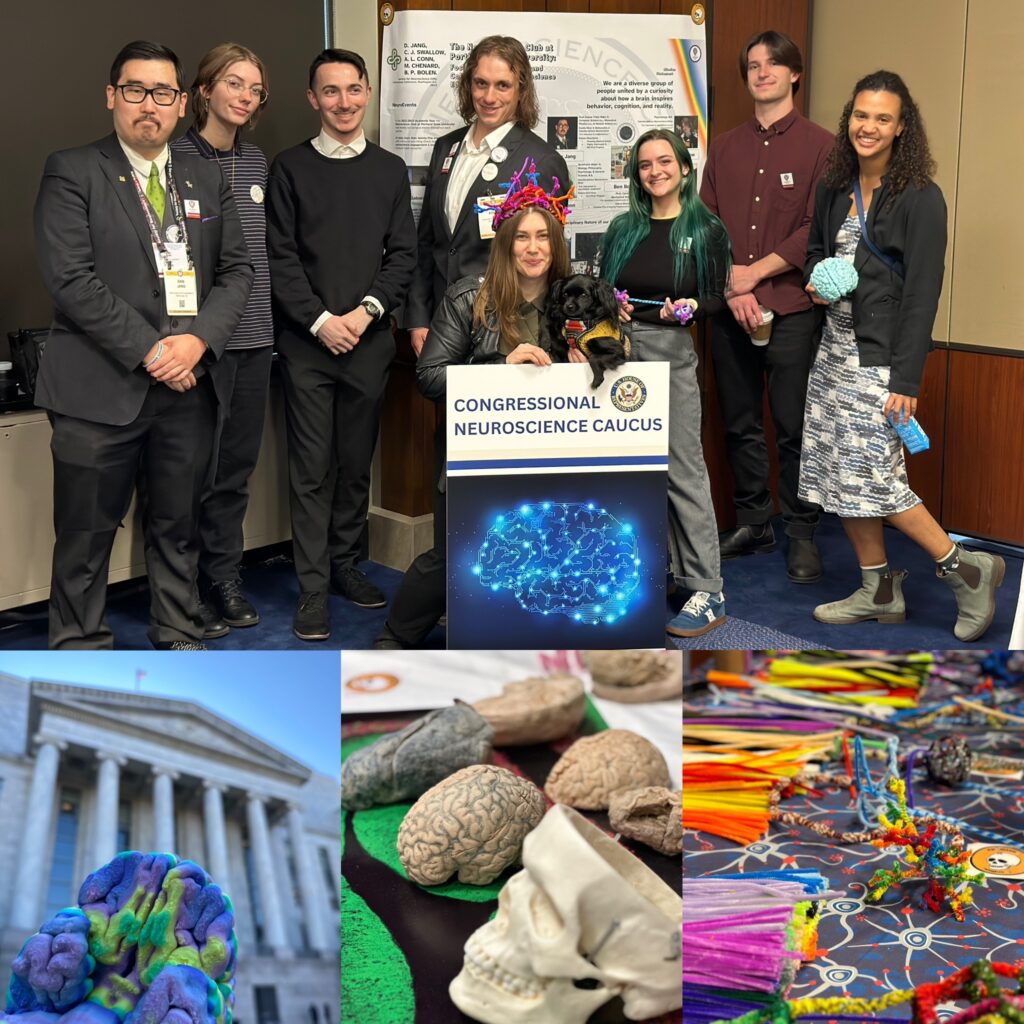
And it was a wonderful event! Here is what we told Congress.
Noggins in the House!

Northwest Noggin is ALL VOLUNTEER!
We’ve persisted for almost a dozen years, yet no one is paid, there are no paid staff, and the faculty who run Northwest Noggin have busy teaching jobs and commitments.
Years ago we incorporated as a nonprofit, so that any grants we receive (for volunteer graduate and undergraduate student housing, meals and transportation, along with art supplies, sheep brains, nitrile gloves) could support our participants from multiple institutions.
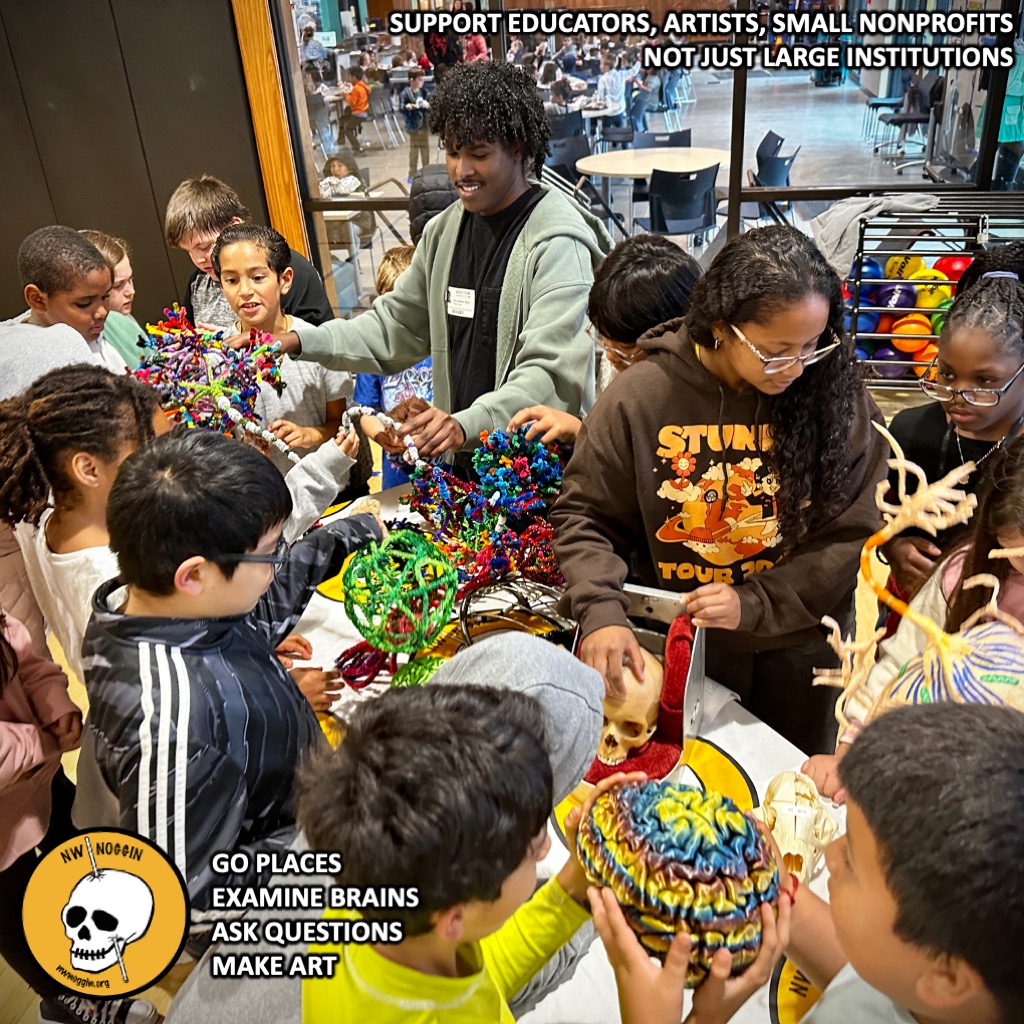
When we’d previously directed grants to our own universities, they had charged us for the privilege and wouldn’t let us spend any of the money on anyone not directly affiliated with them.
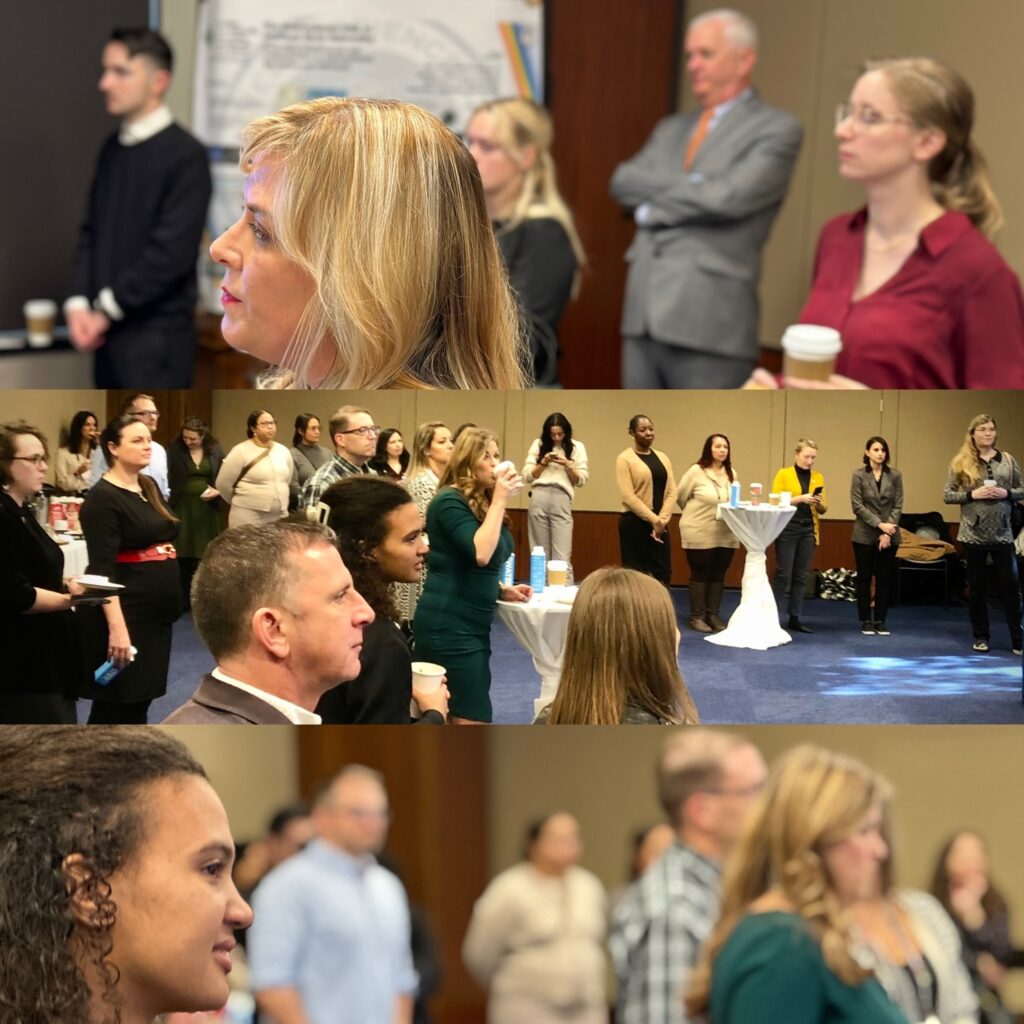
But we are educators, and this volunteer outreach work has vastly improved our understanding of our own community, engaged our brains, informed our teaching, and provided incredible opportunities for the students we serve.
GO

GO PLACES!
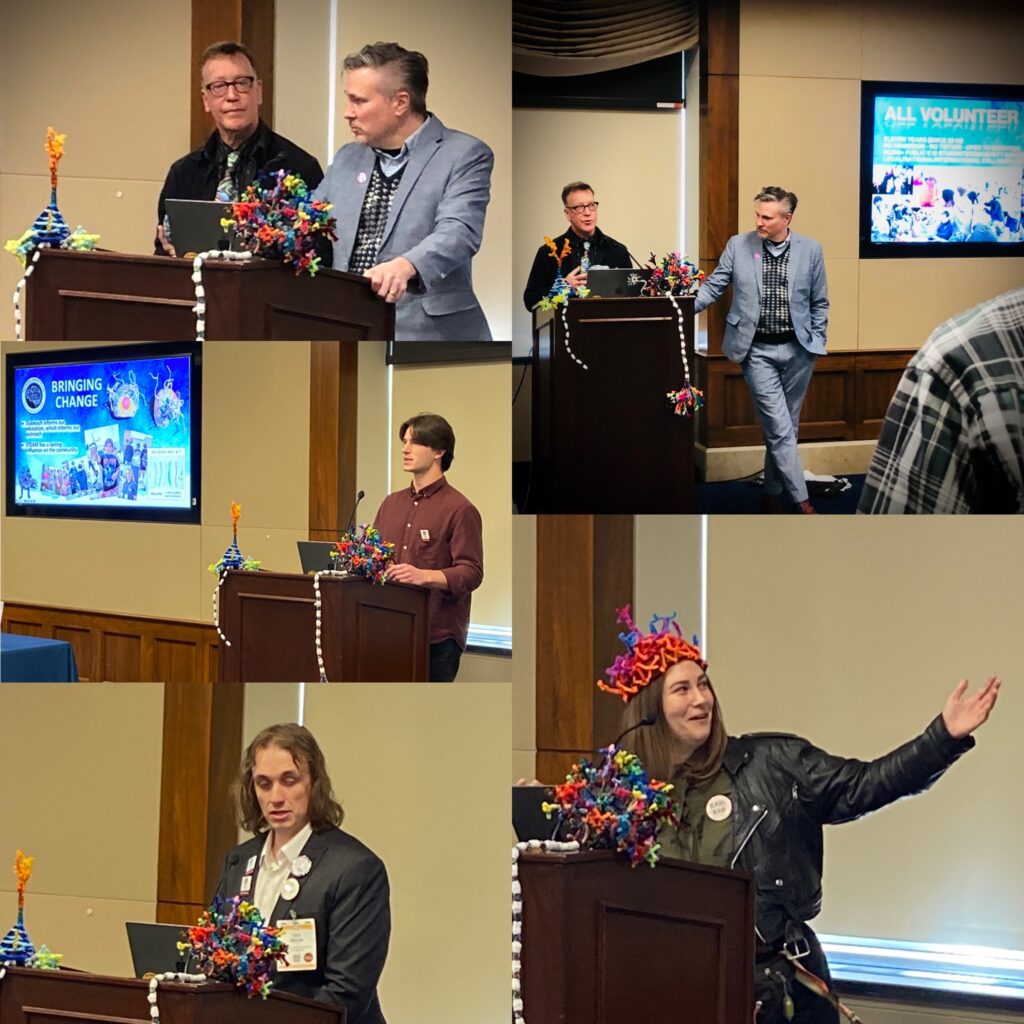
Do you want to maintain and nurture plasticity in your own brain?
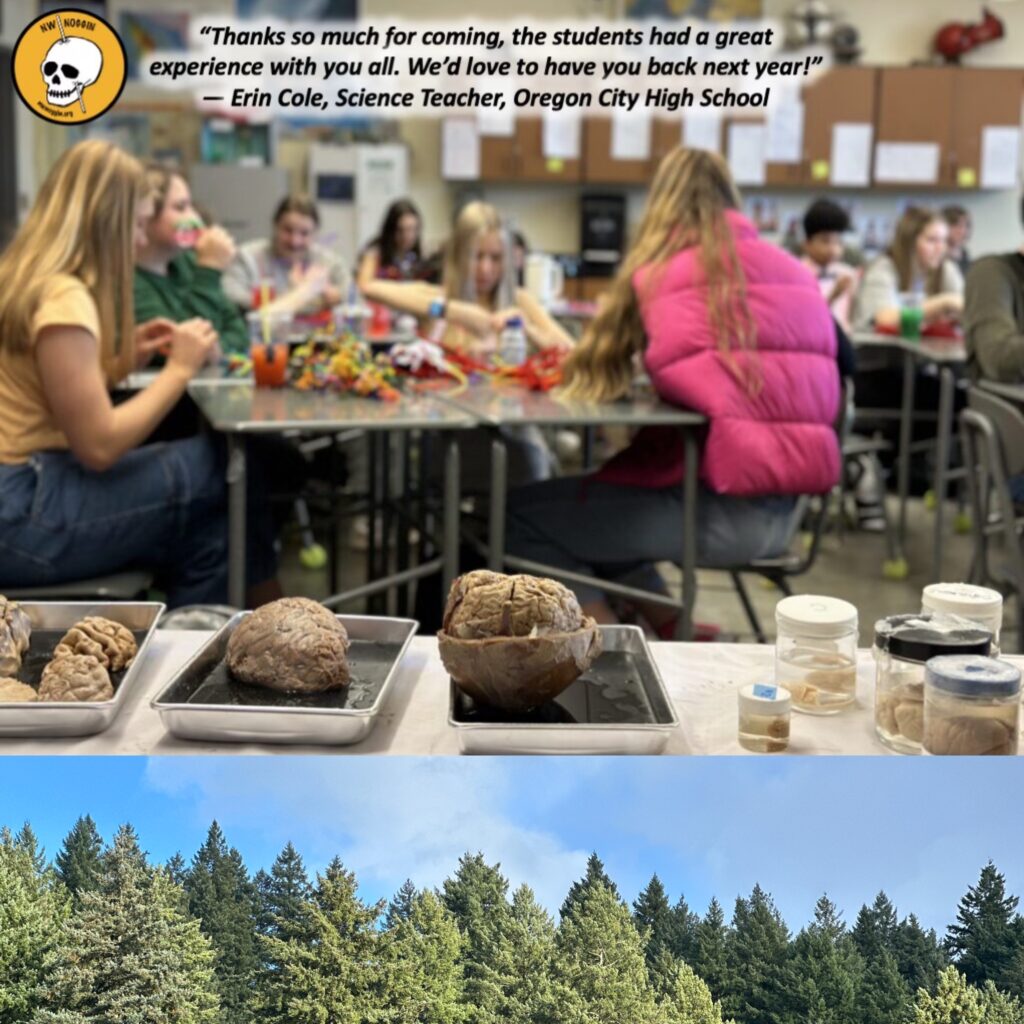
Do you want to respond more effectively to our changing world?
You DON’T do this by sitting at home on Zoom, or in some comfortable institutional office, surrounded by well-compensated fellow faculty who intentionally limit their teaching, mostly speak (at length) with each other, and who continue to hire people with similar academic backgrounds, biases and ideas.
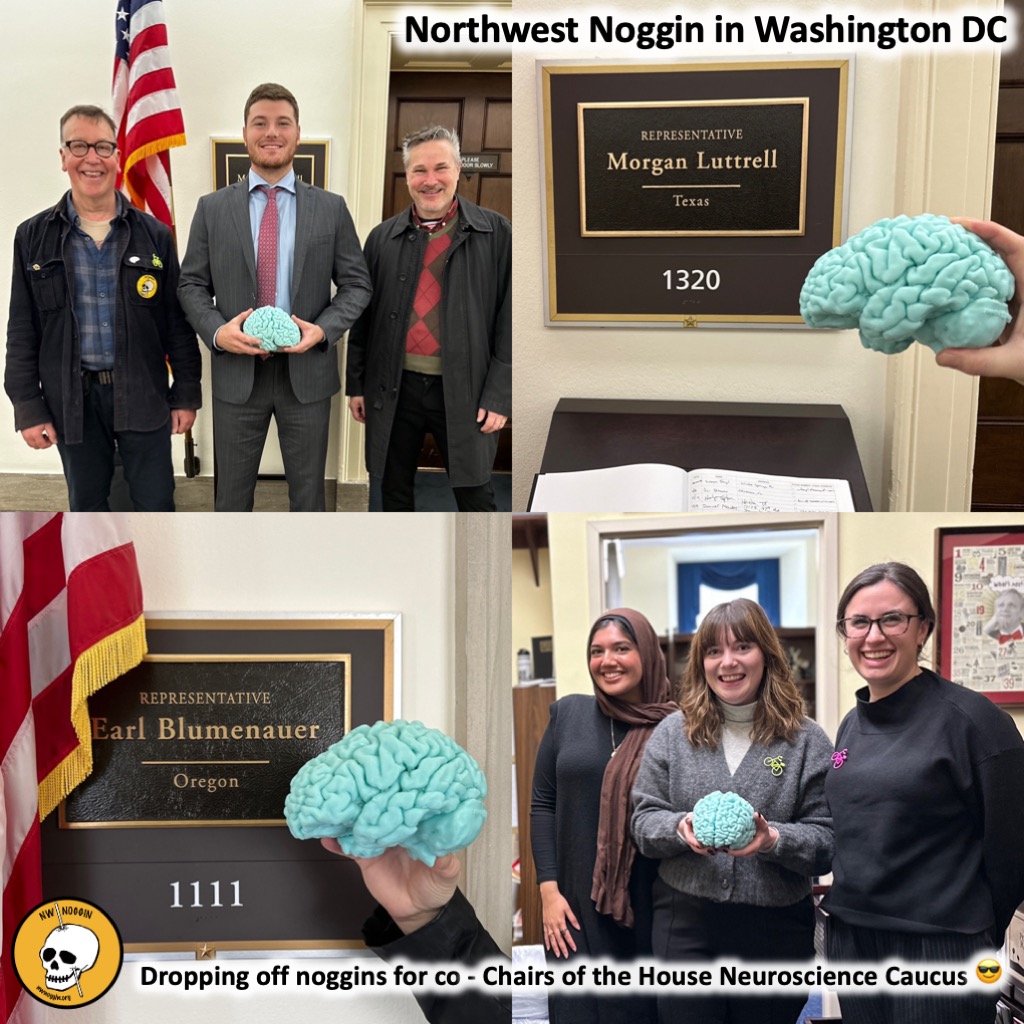
If you want to learn something, you GO PLACES.

Go places where you are NOT the expert, where you are not initially comfortable, or perhaps don’t even understand what’s going on. In these situations, which can be challenging, you are more present, you need to listen, and you can discover what people already know, or want to explore further.
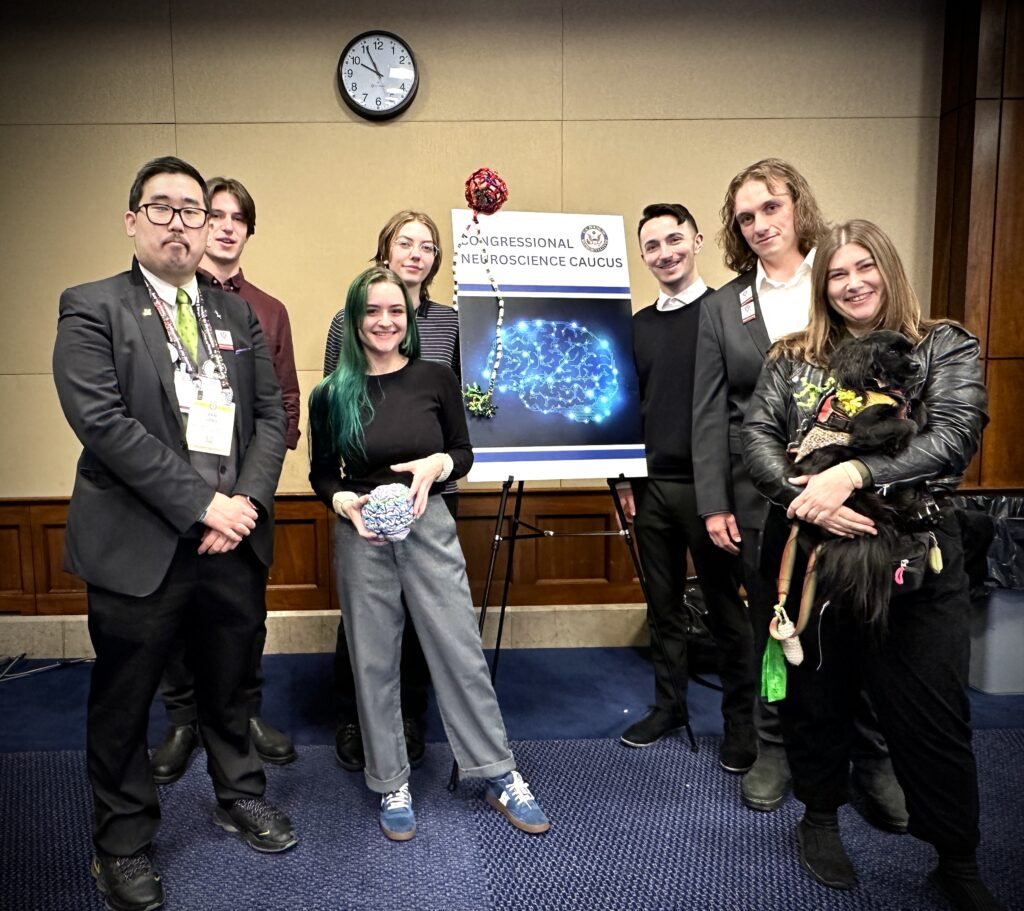
Let knowledge serve, but get better informed when you do it, too.
Going places restores neuronal plasticity, encouraging the growth and elaboration of new network connections, and offers insight into what’s happening beyond where you typically spend your time. For educators it’s key to avoiding the stasis and rigidity of developed adults brains, with inflexible biases and predictions that are less effective in our rapidly changing world.
LEARN MORE: Dynamic Brains and the Changing Rules of Neuroplasticity
LEARN MORE: Use it or lose it: How neurogenesis keeps the brain fit for learning
LEARN MORE: Neuronal and Cognitive Plasticity
LISTEN

Each of us knows and perceives only so much. There are so many other people, and so many other brains, all with fascinating and unique developmental experiences. When we stop and listen, and not just lecture as academic “experts,” we suddenly see each other, and what we hear and learn can broaden our understanding, and better inform our studies, our research, our communities and our lives.
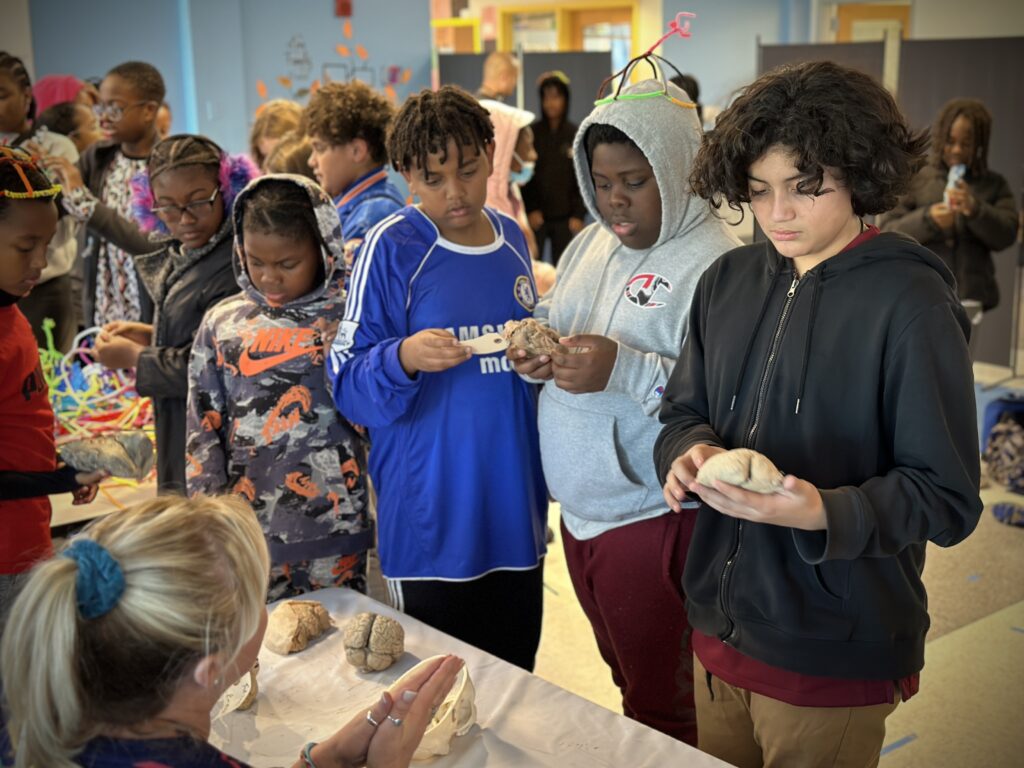
SHARE
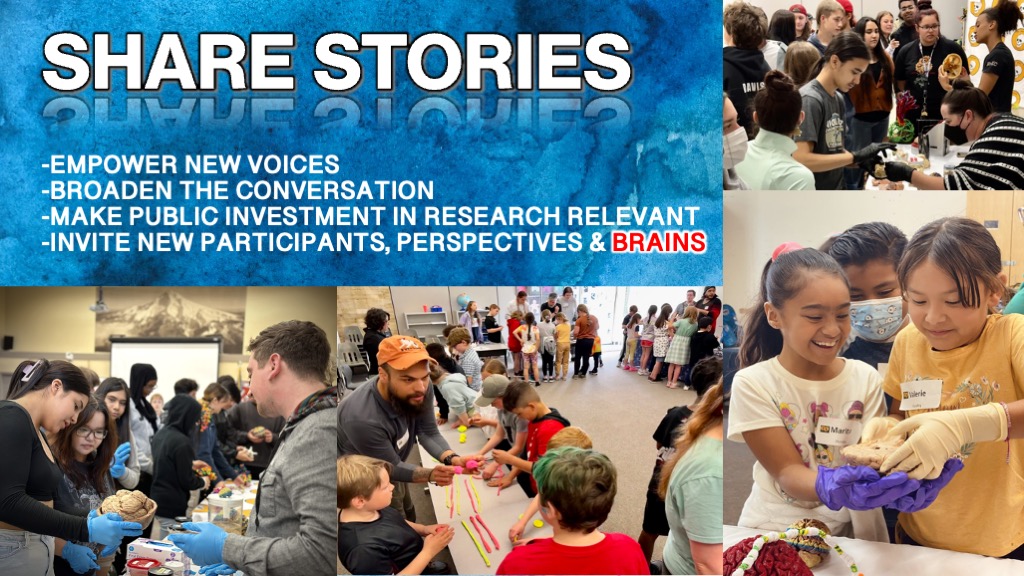
When you go places, and listen, you hear STORIES.
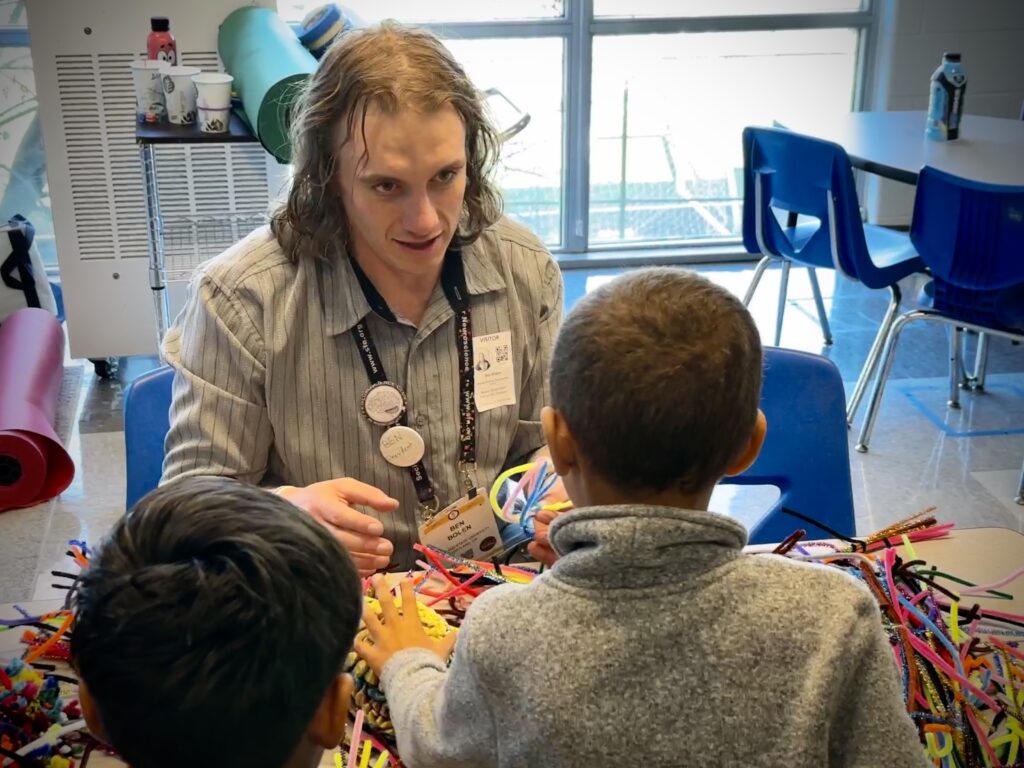
Public K-12 students offer incredible tales and questions about sleep, anxiety, drugs, alcohol, depression, gender identity, adolescent development and more! Houseless youth tell you about being looked at as if they’re not fully human, or how they were kicked out of homes because they aren’t straight, or they describe where they stay at night, often reaching for psychostimulants to remain alert and safe.
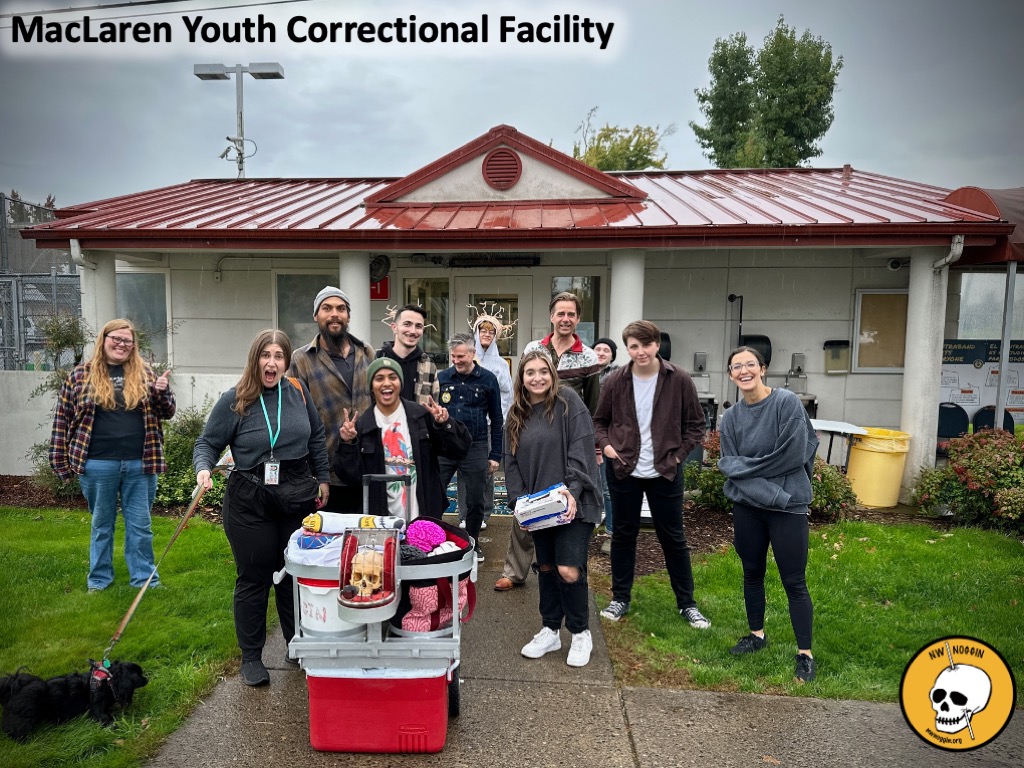
Incarcerated youth – primarily Latinx, Native American and Black – tell you about how their first interactions with law enforcement involved cannabis. Students in rural communities let you know about the complexity of elk, and other animal behavior. And everyone is fascinated by research on the brain, and the stories that we and our volunteers can share from our own classrooms and labs!
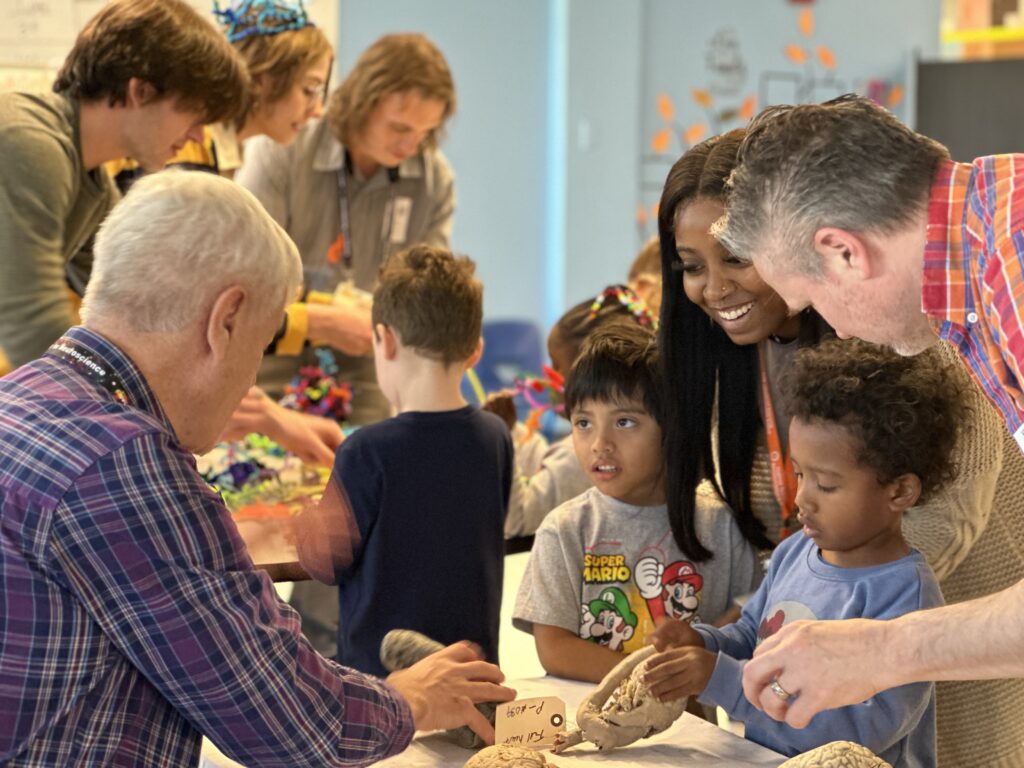
And from going places and sharing stories, we form CONNECTIONS. These are genuine connections. We’re not there to gather subject data, or proctor surveys, give tests or sell something. We’re there to learn too. And thus we’re asked back, again and again and again.
MAKE

We make art because art promotes engagement, and allows people to explore topics they’re curious about by creating things themselves. And when we make art together, we express relevant aspects of ourselves and share them, promoting empathy.
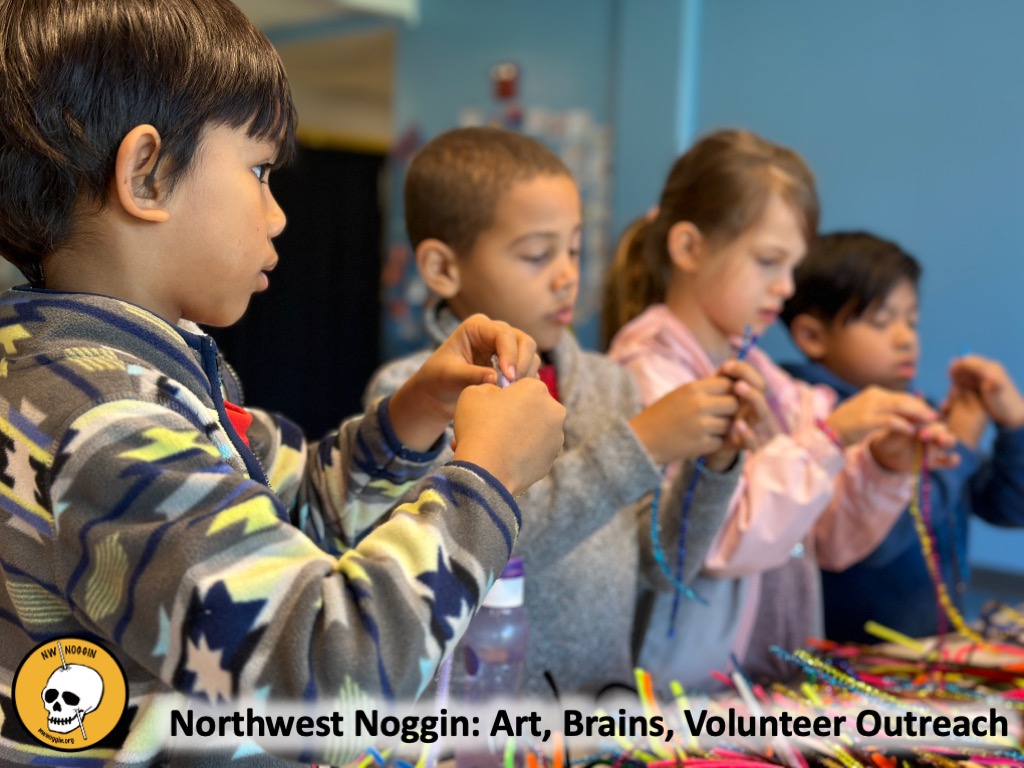
We see each in the works we create, and the stories we tell – and truly seeing other people is key to collaboration, innovation and community connection.
LEARN MORE: Creating Compassion: Using Art for Empathy Learning with Urban Youth
LEARN MORE: Art: an occupation with promise for developing empathy
LEARN MORE: Thankful for brains
LEARN MORE: Honest selves @ Hosford
INFORM
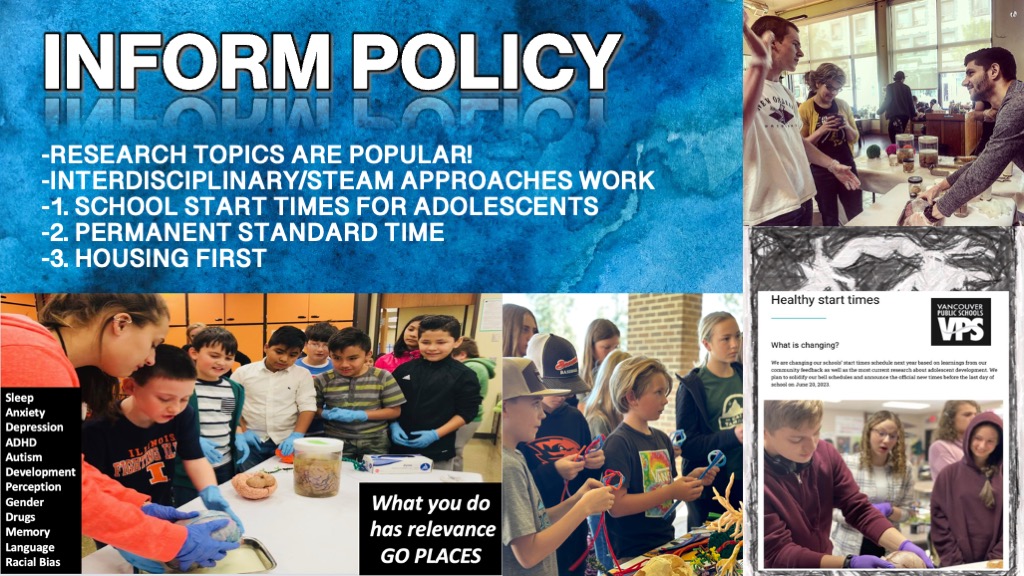
Our students discover that what they do has relevance. Their own studies and research are better informed by going places, sharing stories, making art and listening to diverse perspectives. And those we meet are as fascinated as we are by research on the brain.
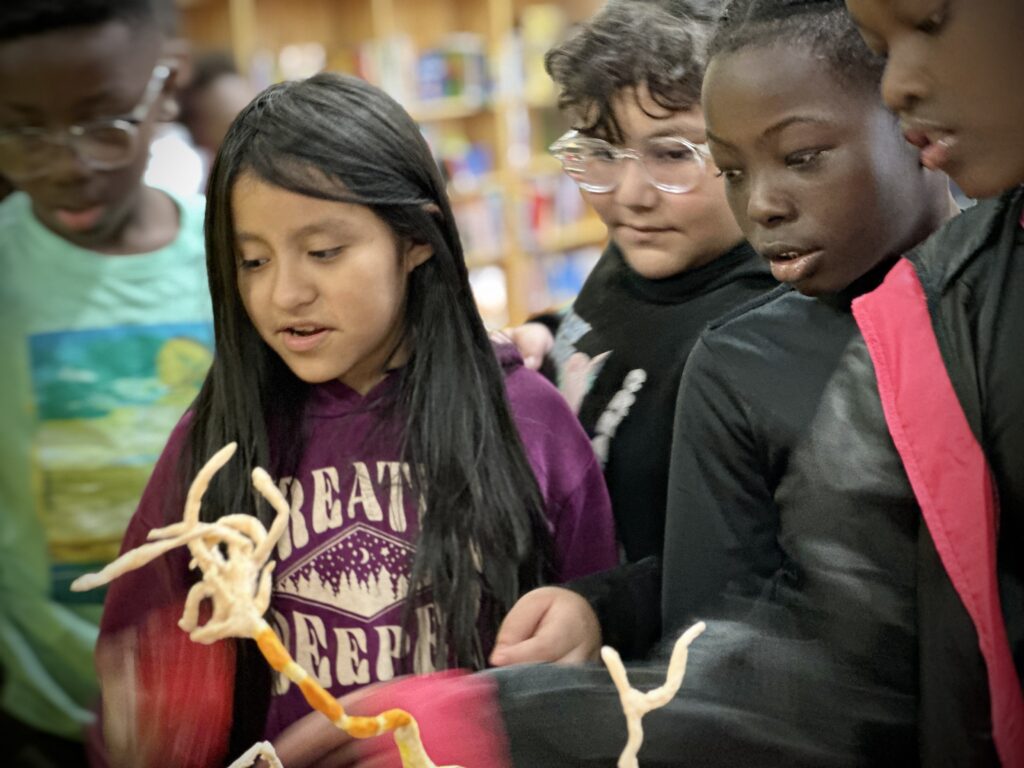
They want to learn more – and contribute.
In these community-led discussions, clear public policy implications can be seen.
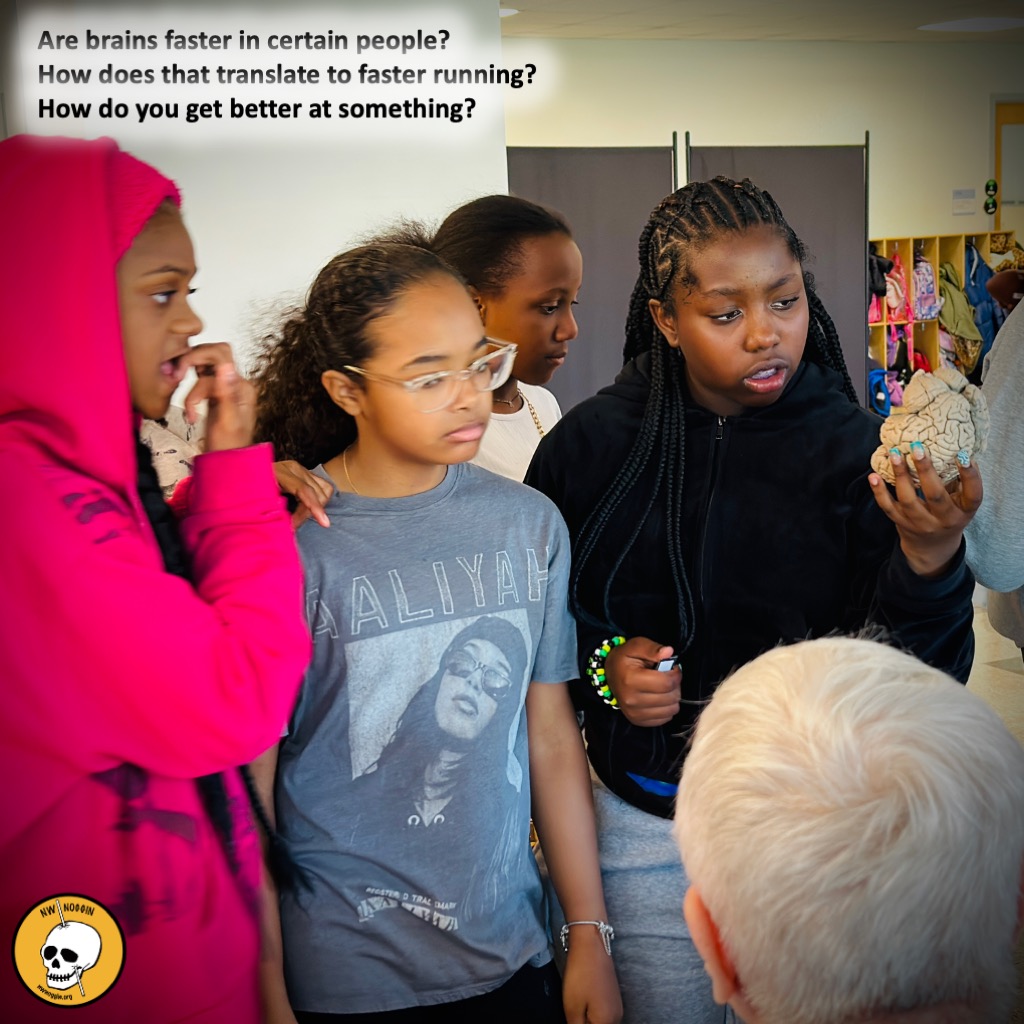
Vancouver Public Schools, for example, recently changed their high school start time from 7:30am to 8:40am, based partly on neuroscience research documenting benefits for adolescent brain development that Noggin volunteers presented – often far too early – in local classrooms!
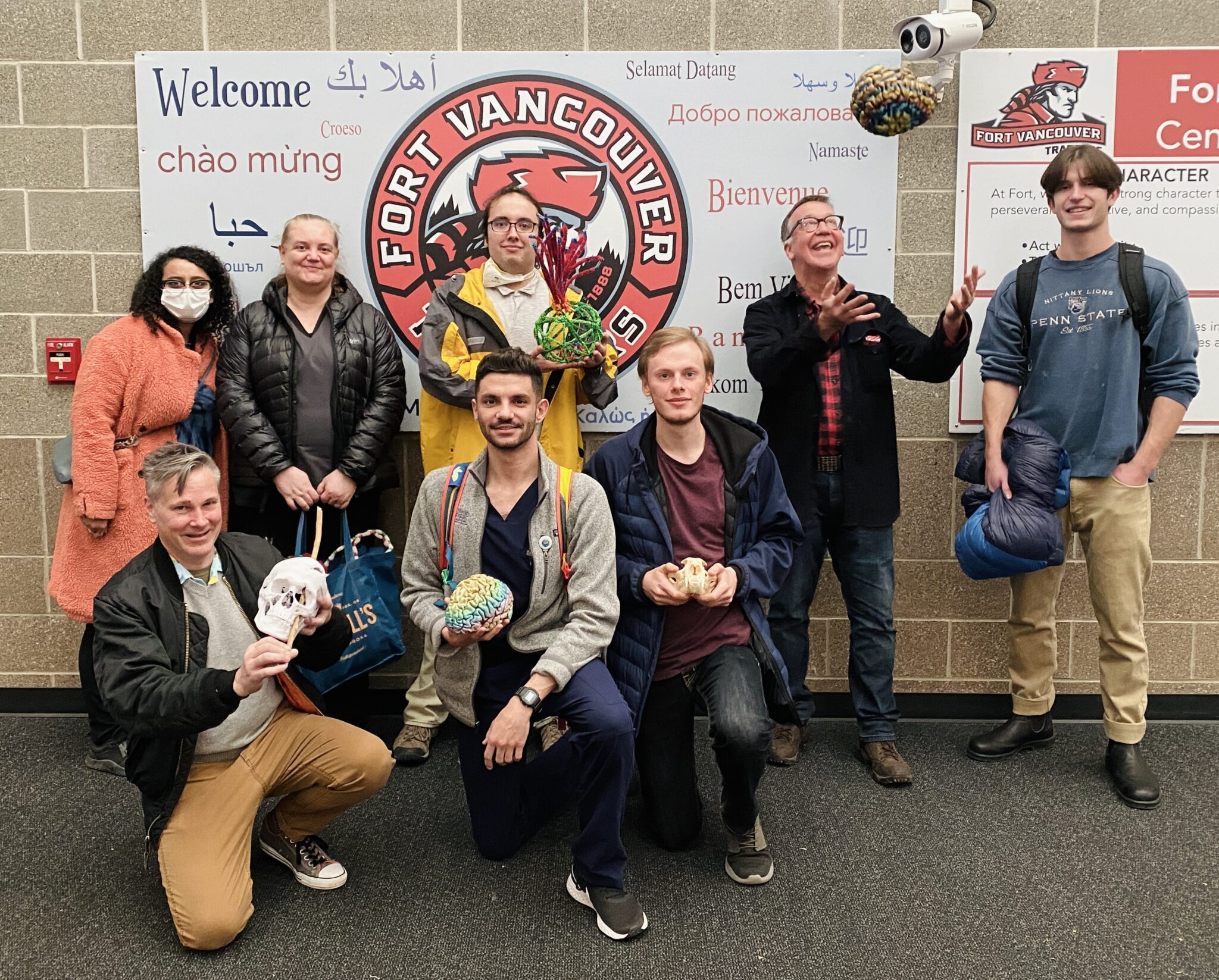
LEARN MORE: Hey Vancouver: Let Kids Sleep!
CHANGE
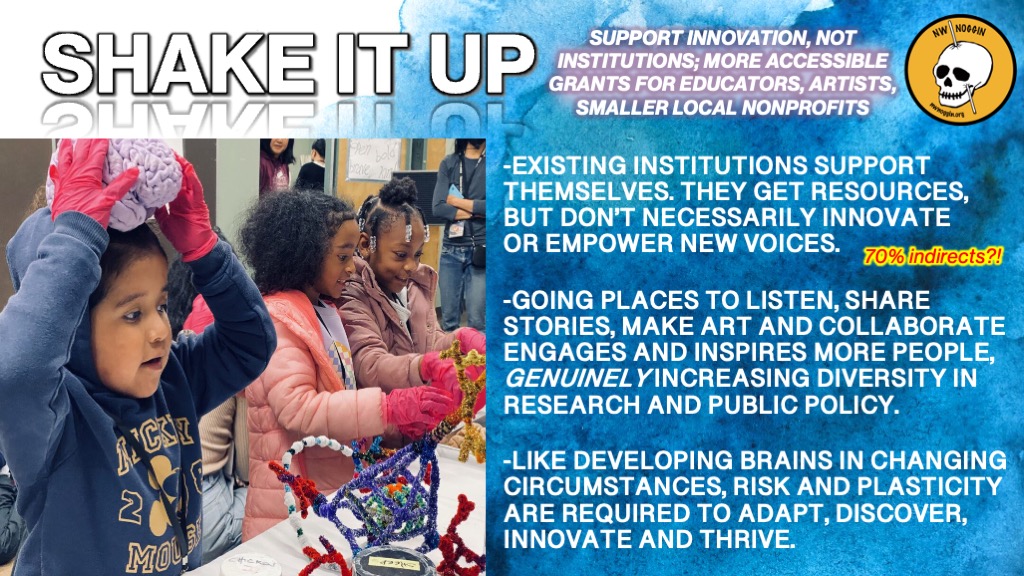
So what should we do?
Institutions need greater plasticity just like many adult brains. They need to shake up existing structures, and try new things – and support individual educators, artists and smaller nonprofits that are often more responsive, innovative and creative than they are.
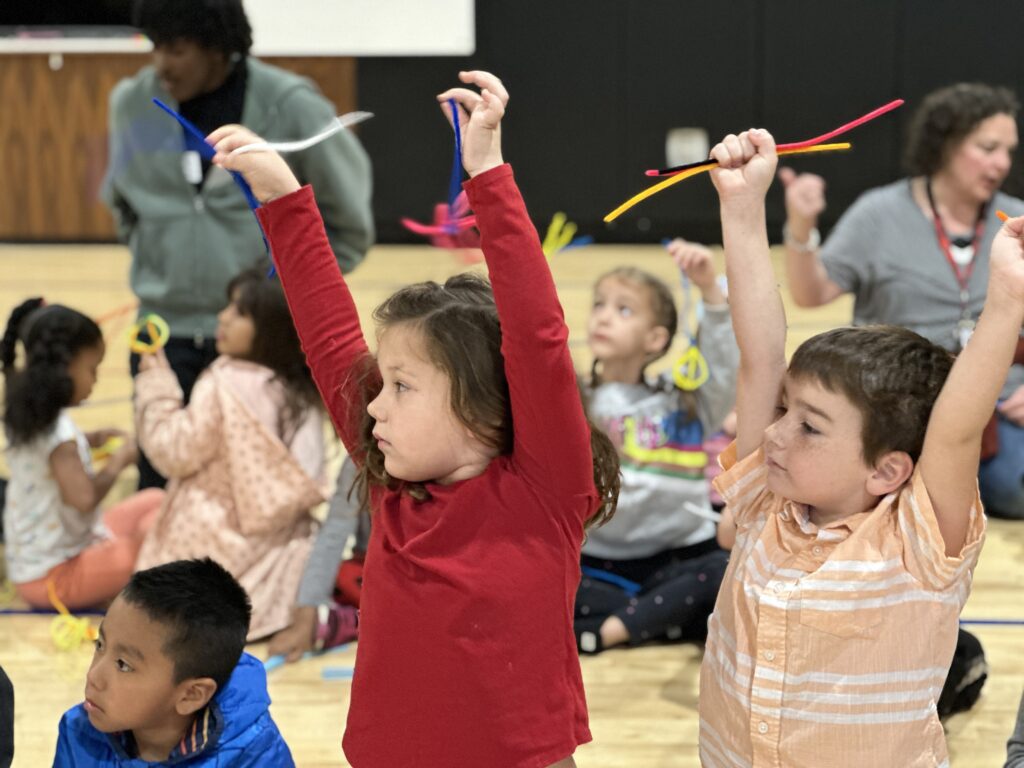
Calls for greater diversity, equity and inclusion are not well-served by funneling all the resources to existing recipients, including large institutions that, as President Obama once explained, often serve themselves instead of pursuing their original missions to serve their communities.
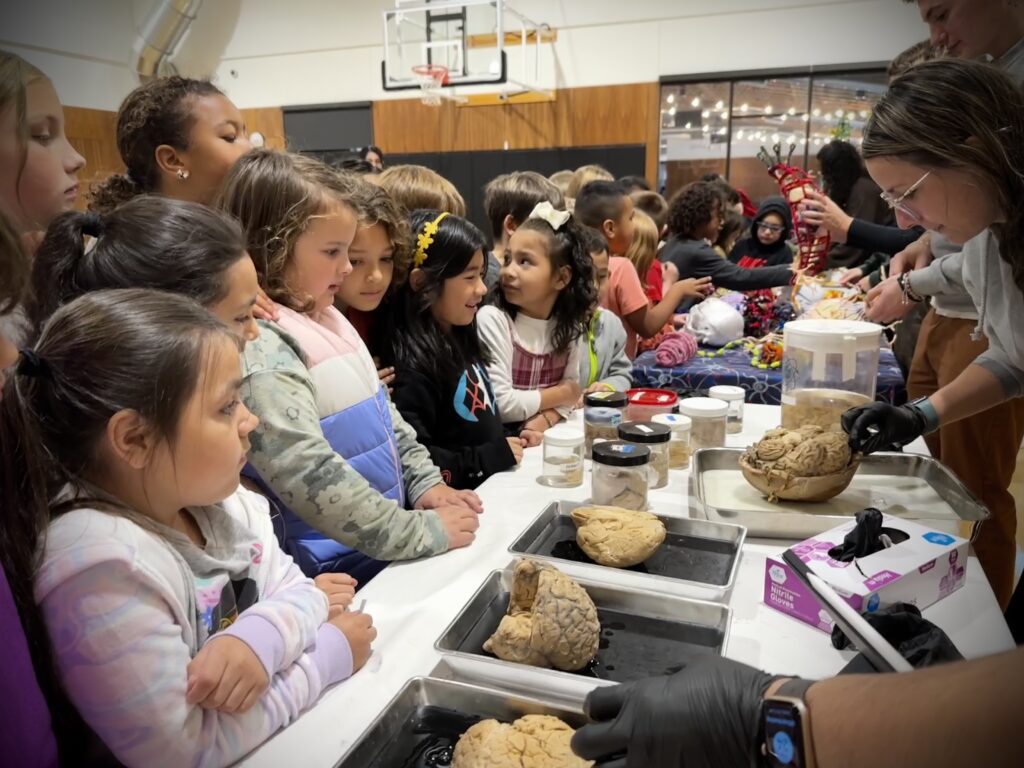
Congress can help by offering accessible funding – not just to big universities, which sometimes swallow up 70% of grants to maintain their static, slow-moving, sclerotic administrative networks – but also to educators, artists and smaller nonprofits who genuinely get out there, go places, listen, share stories, make art, inform policy and do the work.
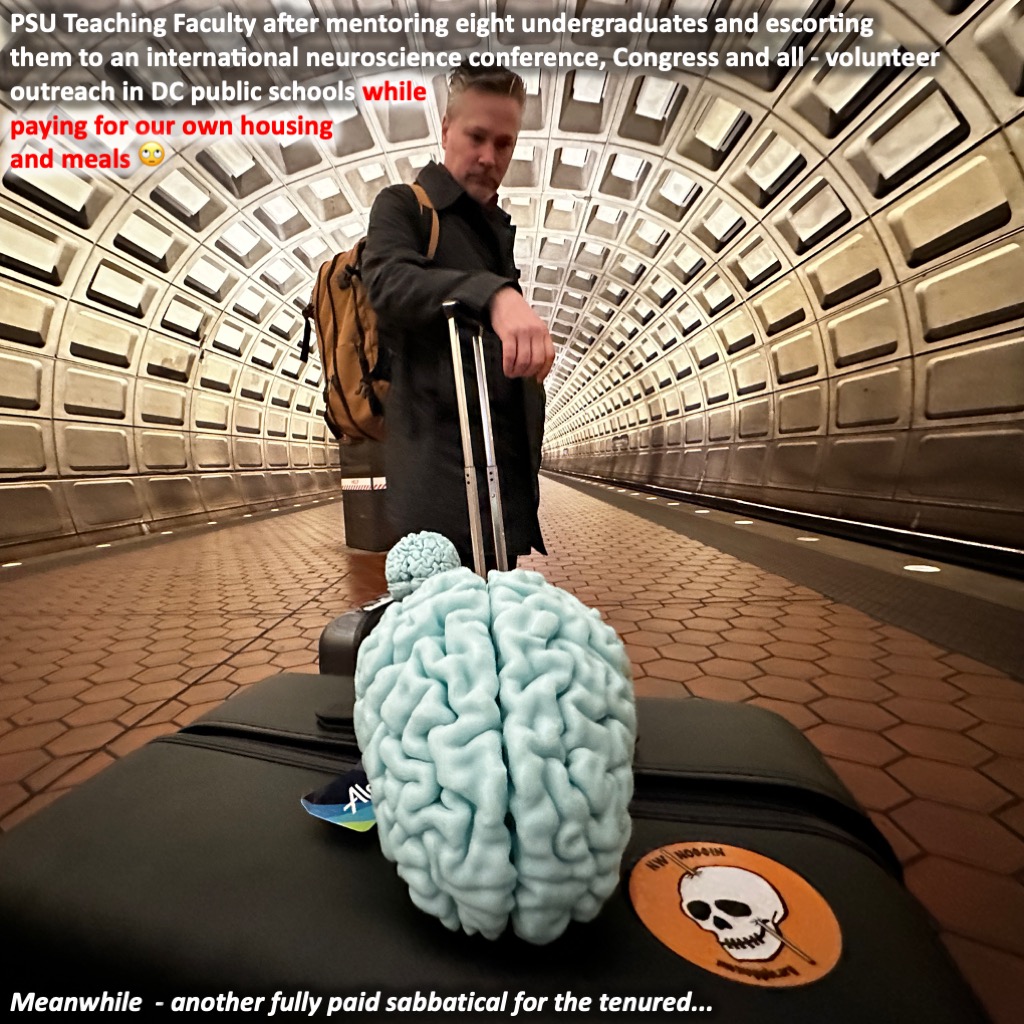
LEARN MORE: Inequalities in the Distribution of NIH Research Project Grant Funding
LEARN MORE: When it comes to teaching and tenure it is time to walk the walk
LEARN MORE: How to Be Off the Tenure Track and Love It
LEARN MORE: Keeping the Lights On
Once again huge thanks to those supporting students, and those who strive to let knowledge serve.
